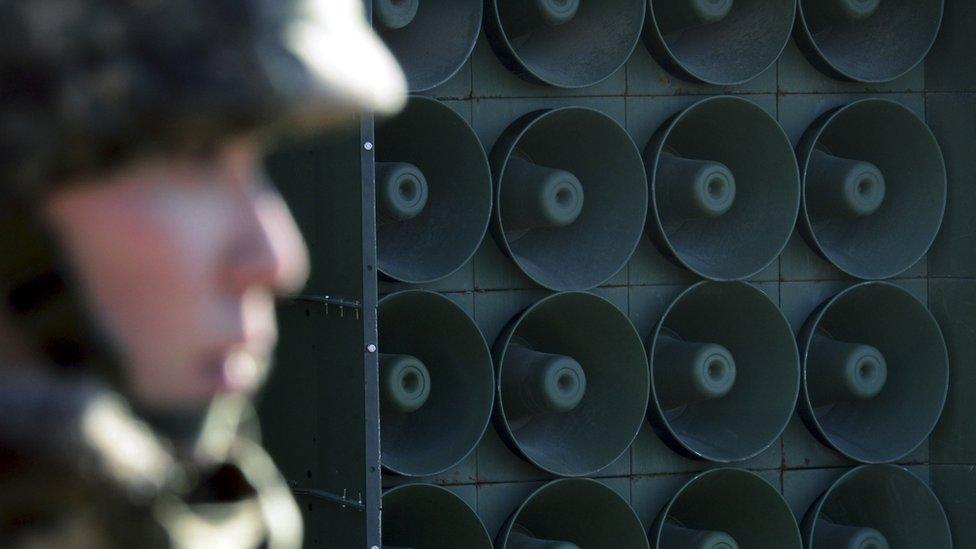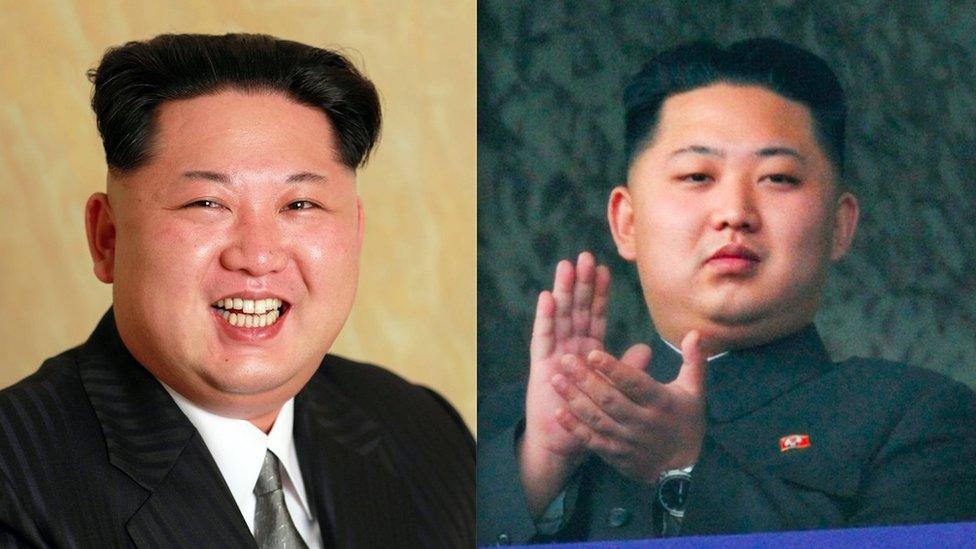North Korea is criticised by South Korea for 'spy broadcasts'
- Published

Before the internet era governments needed creative ways of contacting their foreign agents
South Korean officials have criticised North Korea after it apparently resurrected a Cold War-era method of contacting spies.
In recent weeks, mysterious strings of numbers have twice been broadcast over the radio from the North.
A spokesman for the South's Unification Ministry said it couldn't be sure about North Korea's "hidden intentions".
But it urged the North to "desist from such outdated practices".
What do the broadcasts say?
The numbers were picked up on Radio Pyongyang last Friday, officials have said.
South Korea's Yonhap news agency quoted government sources as saying the 12-minute broadcast began shortly after midnight, with a female voice saying: "I will give review work to No. 27 exploration agents."
The announcer then read: "On page 459 number 35, on page 913 number 55, on page 135 number 86, on page 257 number 2," and so on.
A similar two-minute broadcast took place on 24 June, the AP reported.
What do the numbers mean?
South Korean intelligence authorities are trying to work that out, but they are now on alert for "possible provocations".

North and South Korea are known to keep a close eye on each other's activities
Such broadcasts were used frequently during the Cold War as a way of getting coded messages to spies in the field or to activate sleeper agents.
Spies would use a hardcopy reference book to decode the numbers into instructions.
Yonhap reported that North Korea had not broadcast number codes since 2000 - it has recently preferred to use the internet for its communications.
Why is North Korea doing this now?
The broadcasts come after a spike in tensions between North Korea and South Korea over the North's nuclear and missile tests, and retaliatory international sanctions.
This month, South Korea and the US announced an agreement to deploy an advanced missile defence system, sparking an angry response from Pyongyang.

North Korea's latest missile test was, as always, overseen by leader Kim Jong-un
On Monday, it fired three ballistic missiles into the sea, later saying it had tested nuclear detonators that could be used in a pre-emptive strike on the South.
Prof Remco E Breuker, a Korean expert at Leiden University in the Netherlands, told the BBC that while North Korea could genuinely be trying to contact "sleeper agents" in the South, it could also be an attempt to step up pressure "by ostentatiously signalling agents in South Korea who aren't there".
"In other words, it's a mock-up like some of the missiles shown in one of Pyongyang's military parades."
He says that in the modern era, "it is much easier to use the internet or mobile phones to communicate".
Alistair Coleman, North Korea media analyst at BBC Monitoring, says these messages will cause alarm in the South, but the there's every chance they are a bluff.
Stories like this are lapped up by South Korea's ever-hungry media scene, he says, and it is not unknown for Northern propagandists to allow the South to use this hunger against itself.
In the past, the North has spread the idea that its fleet of "stealth" biplanes could be used to attack Seoul's main airport, he adds.
Whether such an attack is possible is questionable, but the televised military exercises were duly spread throughout the world's media.
- Published16 April 2014

- Published8 January 2016

- Published12 January 2016

- Published19 July 2016

- Published4 July 2016

- Published15 September 2015
